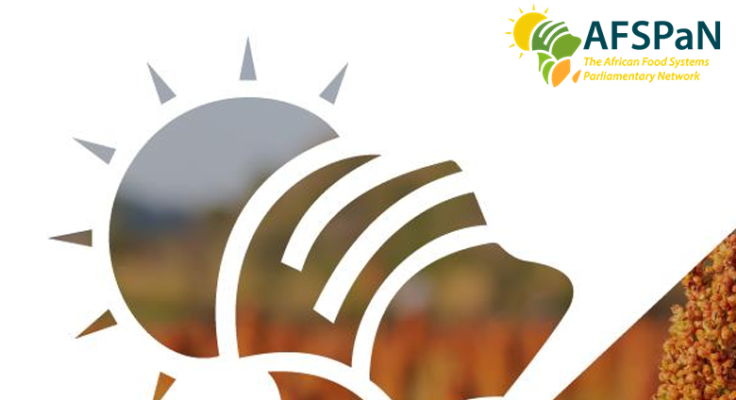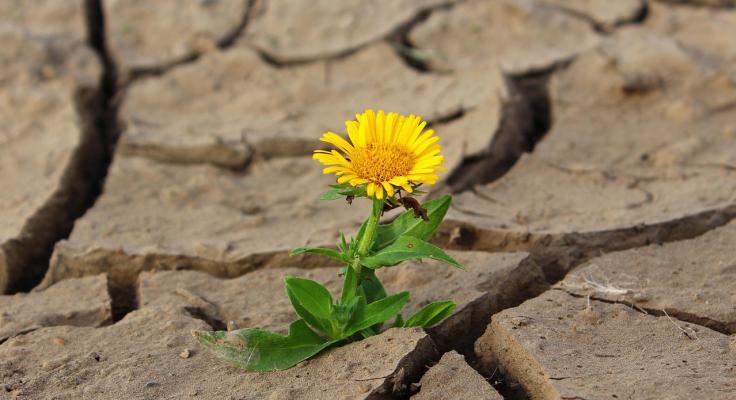Synergies are the name of the game
African leaders will gather in Kampala in early 2025 to advance the continent’s strategy for agrifood systems transformation over the next decade. Building on foundations of the Maputo Declaration (2003) and the Malabo Declaration (2014), the Kampala Declaration will aim to boost sustainable and resilient agricultural productivity, promote multi-sectoral collaboration, and address persistent issues of food insecurity and malnutrition.
Concurrently, the global community is witnessing a renewed political momentum to fight hunger, exemplified by the launch of the G20 Global Alliance Against Hunger and Poverty, under the presidency of Brazil. This new initiative complements existing efforts such as the Zero Hunger Coalition and the Alliance of Champions for Food Systems Transformation, that are currently supporting agrifood systems transformation in Africa.
A recent webinar organised by the Zero Hunger Coalition, alongside its partners GAIN, the African Food Systems Parliamentary Network (AFSPaN), the SDG2 Advocacy Hub, the Shamba Centre for Food & Climate and the Consortium of African Youth in Agriculture and Climate Change (CAYACC), explored how the global community, and specifically existing initiatives, can best support the Kampala Declaration. It brought together representatives from the Alliance of Champions for Food Systems Transformation, the G20 Global Alliance Against Hunger and Poverty and the Zero Hunger Coalition, as well as African leaders in a discussion moderated by Sir David Nabarro (4SD Foundation).
Maintaining the political momentum
HE Ambassador Adriana Telles Ribeiro, Deputy Ambassador from the Embassy of Brazil in Kenya, noted that the decision to make the fight against hunger and poverty aa cornerstone of the G20 this year is anchored in the history of Brazil and the political will of its president, Luiz Inácio Lula da Silva, who has personally experienced hunger.
She noted that many of the programmes and policies instituted in Brazil during the first Lula administration are now being studied, shared and adopted. Examples include the Bolsa Família, a cash transfer programme with proven results, which can be implemented in other countries.
HE Ambassador Nosipho Nausca-Jean Jezile, Chair of the Committee on World Food Security (CFS), highlighted the importance of sustained political leadership to foster action. CFS has developed voluntary policy guidance that is anchored to the right to food, a fundamental human right that directly addresses the interlinked challenges of poverty and hunger. “These policies have been developed in an inclusive manner and would benefit from political support to ensure their effective integration and implementation.”
Parliamentarians can also provide the impetus to drive the necessary political will. Hon. Jeremy Lissouba, member of Parliament from the Republic of Congo and Secretary General of the African Food Systems Parliamentary Network, noted their role in raising awareness on the issues of food security and nutrition. The role of parliamentarians has been recognised and expanded in CAADP3. Parliamentarians are key in shaping policies, ensuring legislative framework support effective and sustainable food systems transformation and allocate national budget. He recognised the collaboration with global alliances and coalitions is crucial, as it amplifies their impact.
Sharing experiences
Sierra Leone had been deeply impacted by climate change. However, with its Feed Salone Initiative, the country is taking action to build resilient food systems, alleviate hunger and malnutrition, decrease food imports and create jobs for women and youth.
Dr Patrick Kormawa, Director of Climate Change and Food Security at the Office of the President in Sierra Leone noted, “These objectives can only be achieved through a food systems approach. We are taking an all-of-government approach to implementation and at the highest level of government. The president has given agriculture the needed impetus that is required for success.”
Partnership is key for Sierra Leone at the national and international level. As Dr Kormawa explains, “This is why our minister for agriculture, Dr Henry Musa Kpaka, is in a leadership position in the Alliance of Champions.”
As HE Ambassador Telles Ribeiro noted, Brazil and Africa have a strong relationship and should work together. “We try to exchange things that have worked in Brazil and things that have worked in African countries. For example, we have a lot in common regarding certain challenges of climate adaptation. The G20 Alliance Against Hunger and Poverty is trying to promote this exchange of evidence-based, successful policies.”
Similarly, the Zero Hunger Coalition has established a South-South dialogue, allowing food systems taskforces from Benin, DRC and Madagascar to share their experiences, enriching each country’s approach to food system transformation through mutual learning and support.
Streamlining investment and coordination
Investments are needed for agrifood systems transformation. To maximise the impact and efficiency of current funding, there is a need to utilize funds strategically to de-risk projects and attract additional financing.
Moreover, building knowledge and capacity is needed to leverage emerging financial mechanisms that can provide alternative source of fundings. This includes debt for nature swaps, debt swaps for school feeding, outcome-based payments, etc.
For Hon. Lissouba, global alliances and coalitions have a role in helping to streamline the mechanisms for donor funding to allow for an increased focus on strategic priorities. Such efforts can help with efficiency, coordination and accountability as has been the case with the development partners coordination group in CAADP.
HE Ambassador Jezile agreed. She called for the “sharpening” of connection points to enable more efficiencies in terms of “financial flows as well as the capacity to handle the resources in a manner that upholds governance principles that we aspire towards.”
Creating synergies
The Post-Malabo Agenda places agrifood system transformation at the core of its strategy for development. As such, “We need to think about systems, interlinkages and connections,” noted Dr Ibrahim Mayaki, Chair of the Zero Hunger Coalition and the African Union’s Special Envoy for Food Systems. Trade has multiplied by three in agrifood products in Africa since 2000, however, more industrialisation and infrastructure are needed to strengthen regional value chains.
According to Dr Mayaki, the Rome-based UN agencies have taken important steps in creating synergies while the G20 Global Alliance Against Hunger and Poverty has pushed for synergies across all continents. The Zero Hunger Coalition also favours “coherent interlinkages between all the actors in this domain. Synergies are the name of the game.”
HE Ambassador Telles Ribeiro agreed and noted that the “Alliance will allow us to get to the nitty-gritty, to the synergies referred to by Dr Mayaki and to actually share what works.” She called for figuring out how to get those very simple things right.
For Hon. Lissouba, there is great alignment of priorities and high-level objectives between the global alliance and coalitions as well as with the CAADP framework. “This is the most encouraging thing because it very much highlights what we know that needs to be done. The challenge now will be for us to cement this convergence and to do so through formal mechanisms and platforms for alignment and collaboration.”
Next steps
As Dr Benjamin Davis, Director of the Rural Transformation and Gender Equality Division at FAO, noted in his closing remarks, that 70% of financing needs of small-scale producers are not being met with 75% of small producers and SMEs in Sub-Saharan Africa lacking adequate access to finance. This situation is particularly dire for women and youth.
He therefore called on global alliances and coalitions to “mobilise political commitment in order to increase the amount of resources going to small-scale producers and to ensure that agrifood systems transformation is more inclusive and sustainable.” As such, he called for getting the basics right, consistency, resilience and synergies. “All skills that we need to put into food systems transformation work and really very much helped by these different alliances,” he noted.
HE Ambassador Jezile agreed. “The various coalitions should build on complementarities. The challenges are huge, the opportunities galore. Let us invest in interlinkages and challenges for long-term food security,” she concluded.



